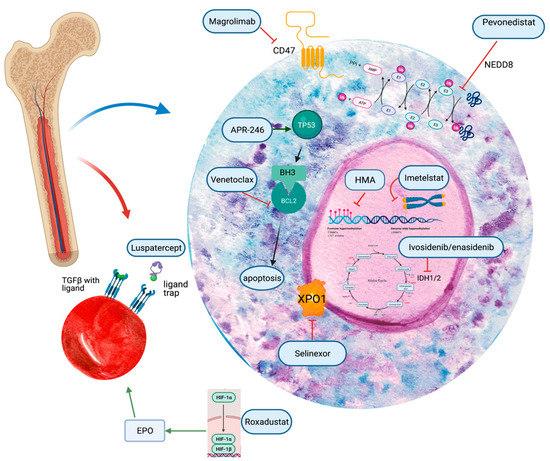Effective Treatment Options for Pediatric Myelodysplastic Syndrome (MDS)
Understanding and Addressing the Unique Treatment Needs of Children with Myelodysplastic Syndrome
Pediatric Myelodysplastic Syndrome (MDS) is a rare blood disorder that primarily affects children. It is characterized by abnormal development and functioning of blood cells in the bone marrow, leading to insufficient production of healthy blood cells. Treating Pediatric MDS requires a comprehensive approach that takes into account the specific needs and challenges faced by young patients. This article explores the various treatment options available for Pediatric MDS, including chemotherapy, stem cell transplantation, and supportive care measures.
 Chemotherapy: Chemotherapy is a commonly employed treatment modality for Pediatric MDS. It involves the administration of powerful medications that target and destroy abnormal cells in the bone marrow. Chemotherapy drugs can be given orally, intravenously, or through a combination of both. The specific regimen and dosage depend on factors such as the child's age, overall health, and disease progression. The goal of chemotherapy is to suppress the abnormal cells, allowing healthy blood cells to regenerate and restore normal functioning of the bone marrow.
Chemotherapy: Chemotherapy is a commonly employed treatment modality for Pediatric MDS. It involves the administration of powerful medications that target and destroy abnormal cells in the bone marrow. Chemotherapy drugs can be given orally, intravenously, or through a combination of both. The specific regimen and dosage depend on factors such as the child's age, overall health, and disease progression. The goal of chemotherapy is to suppress the abnormal cells, allowing healthy blood cells to regenerate and restore normal functioning of the bone marrow.
Stem Cell Transplantation: Stem cell transplantation, also known as bone marrow transplantation, is often considered as a curative option for Pediatric MDS. This procedure involves replacing the diseased bone marrow with healthy stem cells obtained from a donor, typically a sibling or a matched unrelated donor. Stem cell transplantation can be performed using two main approaches: allogeneic transplantation, where the donor cells come from someone other than the patient, and autologous transplantation, where the patient's own previously collected and treated stem cells are used. The decision to proceed with stem cell transplantation depends on various factors, such as the child's age, disease severity, availability of a suitable donor, and overall health condition.
Supportive Care Measures: Supportive care measures play a vital role in the overall management of Pediatric MDS. These measures aim to alleviate symptoms, improve quality of life, and minimize complications associated with the disease and its treatment. Supportive care may include blood transfusions to correct anemia, growth factor therapy to stimulate blood cell production, antibiotics to prevent and treat infections, and regular monitoring of blood counts and overall health status. Psychological and emotional support for both the child and their family are also crucial aspects of supportive care.
Conclusion: In conclusion, the treatment of Pediatric Myelodysplastic Syndrome requires a comprehensive and multidisciplinary approach. Chemotherapy, stem cell transplantation, and supportive care measures form the pillars of treatment for this rare blood disorder in children. The specific treatment plan is determined based on individual factors such as the child's age, disease stage, overall health, and availability of suitable donors. With advances in medical research and technology, the prognosis for children with Pediatric MDS has significantly improved, providing hope for a brighter future.
What are the common symptoms of Pediatric Myelodysplastic Syndrome (MDS)?
Common symptoms include fatigue, frequent infections, easy bruising or bleeding, pale skin, and shortness of breath.
Is stem cell transplantation the only treatment option for Pediatric MDS?
No, stem cell transplantation is one of the treatment options, but other approaches like chemotherapy and supportive care measures are also utilized depending on the individual case.
Are there long-term side effects of chemotherapy in children with MDS?
Chemotherapy can have potential side effects such as hair loss, nausea, and increased risk of infections, but the treatment team takes precautions to minimize these effects and support the child's well-being.
Can children with Pediatric MDS lead a normal life after treatment?
With proper treatment and management, many children with Pediatric MDS can lead fulfilling lives, although ongoing monitoring and follow-up care are essential.
Is Pediatric MDS a hereditary condition?
Pediatric MDS is typically not inherited, but there can be rare cases where a genetic predisposition may play a role. It is important to consult with a healthcare professional for a thorough evaluation and understanding of the individual case.
We are associated with experienced and highly skilled medical professionals. We use the latest medical technology available in the world and we provide medical services in collaboration with JCI & NABH Certified hospitals only. Our services include various types of treatment and organ restructuring and transplant.
